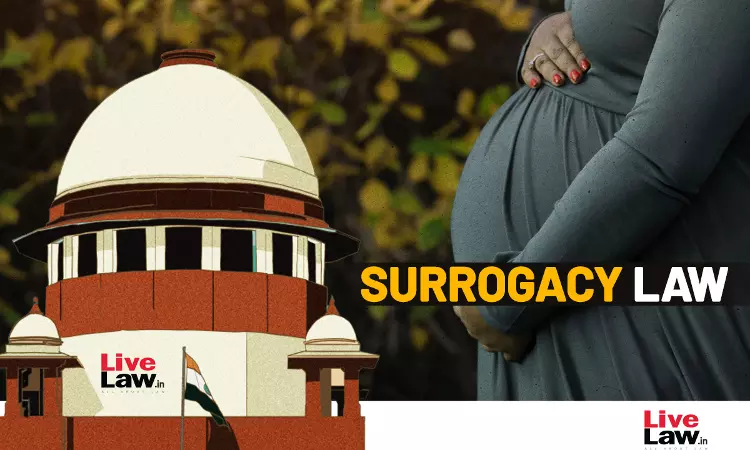Supreme Court Seeks Centre's Response On Plea To Allow Surrogacy For Single Unmarried women
Sheryl Sebastian
5 Dec 2023 5:10 PM IST

Next Story
5 Dec 2023 5:10 PM IST
The Supreme Court on Tuesday (05.12.2023) sought the response of the Central Government in a plea challenging various provisions of the Surrogacy (Regulation) Act, 2021 and the Surrogacy (Regulation) Rules, 2022 that excludes unmarried single women from availing the option of having children through surrogacy. A bench of Justices BV Nagarathna and Ujjal Bhuyan issued notice in the plea today....
